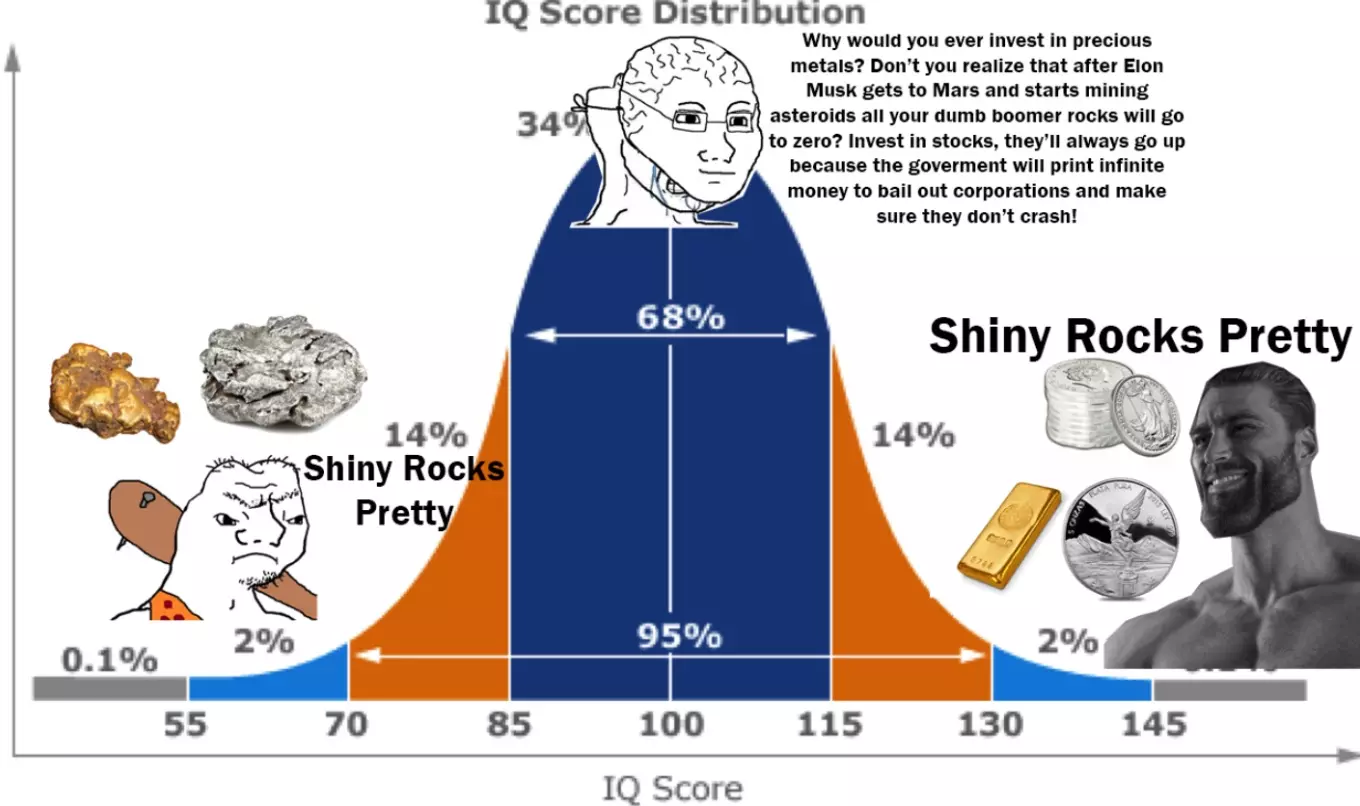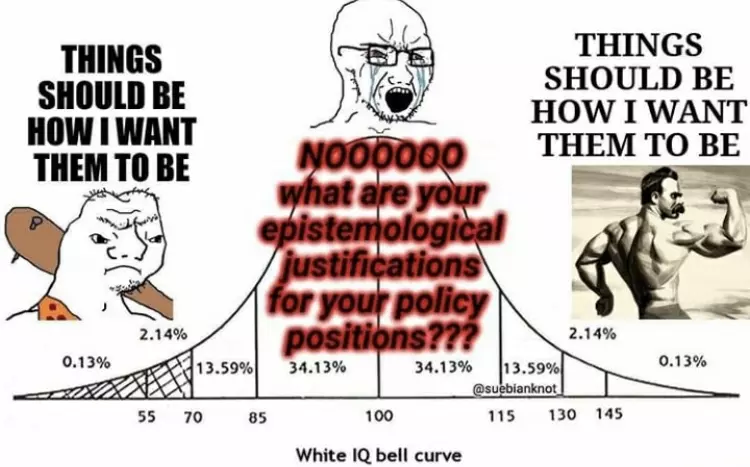This article is pending a rewrite to be brought up to newer quality standards.

This is a question that might have cropped up if you have ever seen someone feign willful ignorance of faults to the ideas or positions they have. They will dismiss critique, emphasize the quality of ignorance, and do so with a happy smile. This behavior can be seen from politics, to religion, to mere opinionated discussion. The less reasonable and more primitive your argument is, the more successful it is. Take for example someone defending the notion that, in a fight, a monkey would beat a crocodile. If the person betting on a crocodile starts giving reasoning based on statistics, power of the crocodile, and generally accepted reasoning for their position, they'll be outclass in pure rhetorical power if the monkey followers simply replies with "big monkey" or some equally unfounded, unreasonable, and irrational non-sequitur. While the example given is purely trivial, this sort of idea can easily be seen in justification of political moves of people.
::: {.center}
 {width=“600”}
{width=“600”}
 {width=“600”}
:::
{width=“600”}
:::
Why does this rhetoric exist?
This sort of rhetoric that emphasizes a seemingly brutish point of view without any form of justification used to not have value. People would reason based on something when justifying. They'd call upon a common culture or common cause, but, at least with reference to the examples above and what I have observed, when people do this they are telling off their opponent. They are usually humiliating those who bring up any type of detailed fact to the table. They are humiliating that person for being "rational". This, when looked at in the lenses of pure rationality and materialism, seems absurd. The only reasonable conclusion is those people saying these things are inherently stupid. Now, this sort of mentality fails to account for a cultural shift that has happened: a rejection of deconstruction has occurred among those dissenting. This is due to the observation that rationality and its consequences has allowed the rules of society to be ignored. The once prominent church was dismantled time and time again by scientific discovery and philosophical pressure. The traditionalist way of life that puts an emphasis on some form of esoteric virtue (that, in the end, translated to stability) has been undermined by the "rationality" induced materialism. Due to this, there is a high degree of cultural rejection among dissenters of rational means to explain the world due to them not fitting into the tradition.
Why does this rhetoric work?
The uprooting of tradition has put great decay upon societies. This fact is easily observable and reinforced due to the constant inadequacy of the modern world to provide what is needed among the population. Rather this be easily observable hole in the form of free speech platforms ceasing to exist on the internet or a difficult and complex hole such as the lack of foundational structure that is needed to give rise to good virtue in a society and people. If reason is against tradition, then it makes sense to be against reason. This then manifests itself in rhetoric that is seen as bold. This boldness is akin to the appraisal of a faithful church goer who, no matter the circumstance, will adhere to his faith. It is a form of loyalty due to the fact that these people have no rational justifications for their tradition (or at least haven't found them yet). When around ever corner is a fact-checker willing to scrape a bit more stability away from your worldview, it becomes understandable why someone would want to reject the fact-chacker. This, of course, assumes the fact checker himself is of truthful authority too.
What should be done about this form of rhetoric?
This type of rhetoric is not going to go away until a foundation for culture if rediscovered, thus we should work to rediscover this foundation and also embrace this form of rhetoric as to maintain stability. This may seem absolutely absurd, but to give a rational justification to this seemingly irrational behavior, one must look at what is gained from having a traditionalist worldview: Stability. In times as utterly chaotic, degenerate, and as failing as now, the last thing we should want to do is de-incentive a mythos that creates virtue. Unless a supplementary mythos that is more accurate and is (if not more) virtue centered is found, then there is absolutely no reason to uproot these ideas. Even if this mythos is found, one would need to make sure that it is as stable as the last mythos for it to be applied well. If the myth of the metals works to bring about a better society than some scientifically induced egalitarianism, then please stick with the myth of the metals. Some materialists might say that this is promoting "irrationality" in our people and culture, and, while yes, it is a form of noble lie, it is one that keeps out people and culture alive long enough so that we can re-calibrate our tradition to something that is based in the truth and keeping what we value.